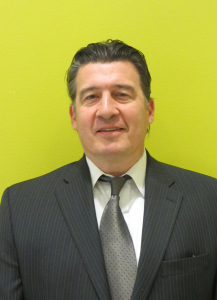The Supreme Court in Cassel v. Superior Court (2011) 51 Cal.4th 113, 244 P.3d 1080, held that evidence of what occurred during or in preparation for mediation in a case is, pursuant to Evidence Code § 1115, et seq., inadmissible in any subsequent legal proceedings arising out of the mediated case. The ruling effectively placed the preservation of an absolute mediation privilege above the clients’ right to introduce evidence in a subsequent action between the attorney and client. This raises ethical issues when, as does occur, a client legitimately says, “you mishandled my case.”
The court did not address the issue of an attorney who, knowing a client thinks his case was mishandled, mediates it knowing he can use the mediation privilege as a shield to cover his error. This concern is valid: Justice Chin concurred with the Court’s decision “reluctantly,” and pointedly noted that the ruling shielded the acts of attorneys from a malpractice action for errors during a mediation, including when advising clients, even if the advice was “…incompetent or deceptive.” He also noted “attorneys participating in mediation will not be held accountable for any incompetent or fraudulent actions during that mediation . . .”. Cassel v. Superior Court, supra, at 139-140. Clients have often complained that their attorney mishandled their case and they settled for a “low ball” figure to avoid the alternative of proceeding to trial and losing as a result of the attorney’s error.
Cassel did not address or provide any guidance as to the following ethical and other important issues:
1. Do attorneys have an ethical obligation to advise clients that the mediation will shield the attorney from any claims by the client? What about Justice Chin’s concerns? The fact that attorneys participating in mediation will be held accountable if their actions are so extreme as to engender a criminal prosecution falls far short of the protection members of the public expect and are entitled to.
2. The Cassel decision lacks guidance on the ethical issues of advising a client who has ground to complain about the attorney’s handling regarding the effects of Cassel. This raises the possibility of complying with the spirit if not exact rule of CRPC Rule 3-400 – Limiting Liability to Client, and Rule 3-300 – Avoiding Interests Adverse to a Client. It does not address the issue of what an attorney’s obligation is in regards to advising the client that a mediation settlement may preclude the client from pursuing any claims in connection with the attorneys’ fees, handling or results in his or her case?
3. The California Rules of Court, as well as Alternative Dispute Resolution Standards, Uniform Medication Act, and Model Standards of Conduct for Mediation, require (1) voluntary participation, (2) the attendance of all interested parties, and a (3) mutually acceptable settlement. However, the rules contain no provisions to ensure that these standards are actually met. Is a mediation that is not conducted in conformity with the standards entitled to the same treatment as one that is?
4. Do Evidence Code §1115 et seq, and Cassel bar the introduction of evidence regarding deviations from, or non-compliance with, the foundational requirements and rules governing mediation proceedings?
5. Cassel covers only discussions leading up to and culminating in the settlement agreement. However the “in preparation” for mediation language does not provide any guidance as to what “preparation” is, and mediations regularly involve further matters after the actual mediation ends (e.g., preparing formal settlement agreements, resolving lien disputes, attorney-client fee adjustments, etc.) which may require reference to the mediation, yet no guidelines are provided.
The California Law Revision Commission is currently working on addressing the issues resulting from the Court’s Opinion.
 About the author:
About the author:
Kevin M. Sullivan graduated from the University of San Francisco School of Law in 1986 and has been practicing since that time. He is a certified as a specialist in legal malpractice law by the State Bar of California. His practice focuses on attorney-client disputes.



0 comments on “Legal Ethics: Some Thoughts On Issues Raised, But Not Resolved, By Cassel v. Superior Court”